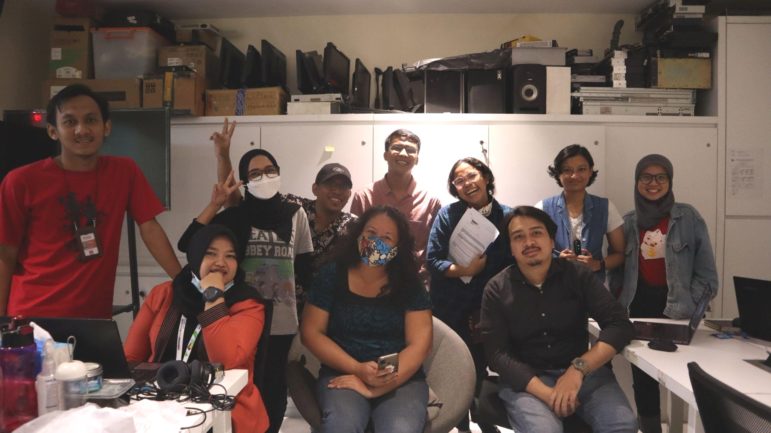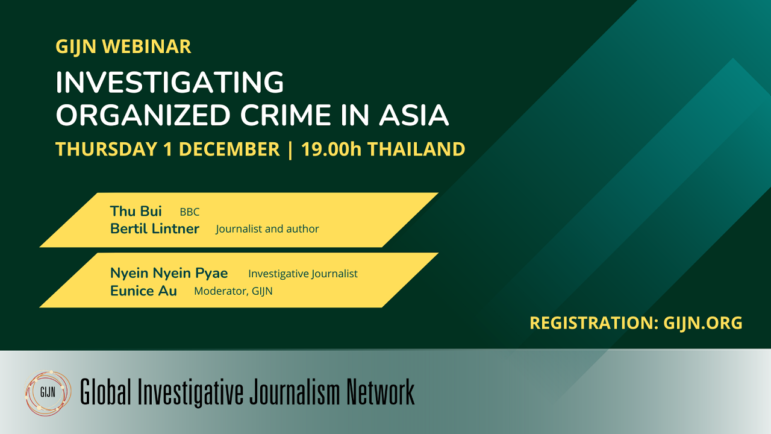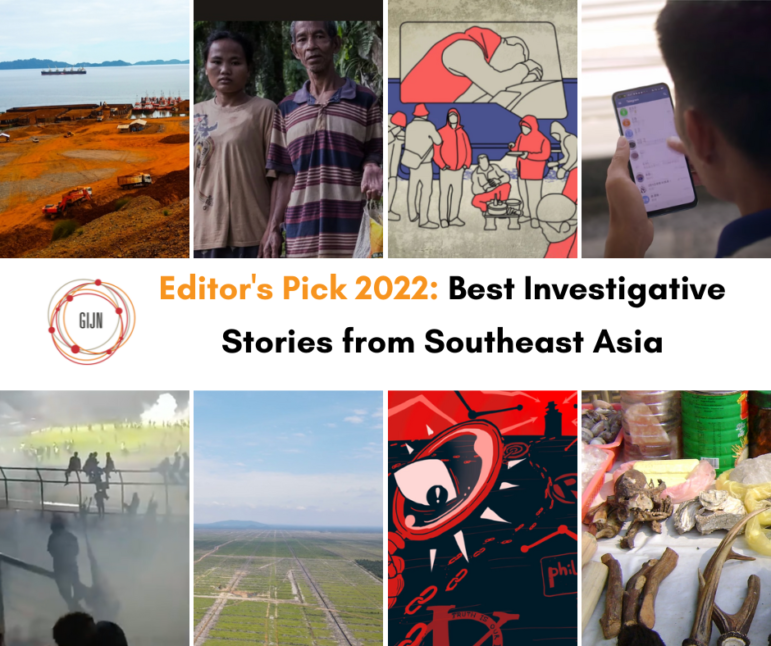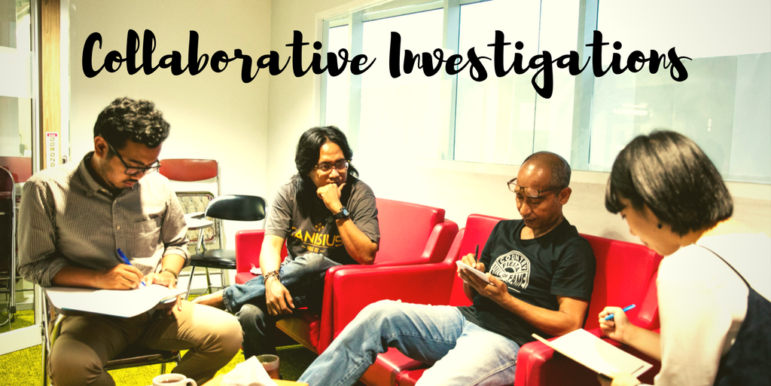

Image: GIJN
Pro-China Propaganda, Espionage Tools, Green Illusion: 2023’s Best Investigative Stories from Southeast Asia
Read this article in
The digital world has become a major battleground for democracy in Southeast Asia. This past year’s presidential election in the Philippines underscored that fact, and at the beginning of 2024, the region’s political attention will turn to Indonesia — the country with the largest population in Southeast Asia — which will head to the polls.
From the risks of online propaganda and disinformation to the ways in which the digital world can serve as a toxic incubator for online attacks against women, our editor’s picks feature several cases related to the digital world. In the Philippines, Rappler exposed how pro-China online propaganda spreads on the internet. In Indonesia, IndonesiaLeaks revealed the procurement and use of espionage tools. Meanwhile, in Myanmar investigators revealed how the ruling military junta launched cyber attacks against female pro-democracy activists by publishing private, non-consensual photos and videos online.
Elsewhere, our list contains stories investigating environmental topics, digging into what really happens to your old sneakers, how a surge in demand for nickel is fueling illegal mining, and an investigation into diplomatic immunity and exploitation.
The stories featured reveal the commitment and tenacity of journalists to continue exposing crime and wrongdoing, often thanks to the use of digital investigative tools.
How Pro-China Propaganda is Seeded Online in the Philippines (Philippines)
Picture the scene: Two Philippine ships, on a routine resupply mission, targeted with water cannons by the Chinese coast guard. Observers might have expected a surge in nationalist sentiment, or a protest over what the Philippine coast guard called an “unlawful incident.” What they saw instead, according to this investigation by the independent outlet Rappler, was a series of posts in support of Beijing. According to the team behind this investigation, this reaction, and others like it, are examples of how pro-China sentiment is being seeded online.
The reporter found a community on Facebook that has for years been “spreading propaganda and disinformation to support China.” These posts were often written by bloggers and posted on websites where the authors portrayed themselves as academic sources connected to think tanks. Information from these sources was then amplified by similarly supportive media outlets. This investigation comes with interactive graphs and a network analysis conducted by Rappler, together with TheNerve, that allows readers to see how the spread of pro-China messaging has changed over the years.
Tracking NSO Spyware in Indonesia (Indonesia)
Cyberattacks targeting politicians, journalists, and human rights activists in Indonesia have become more frequent in recent years. Turning the tables, seven Indonesian media outlets joined forces to create IndonesiaLeaks — an encrypted platform where insiders and whistleblowers can securely release their information — which uncovered the procurement and use of espionage tools in Indonesia. One of the pieces of equipment highlighted is a zero-click exploit, purchased from a company linked to the NSO Group, and imported to Indonesia by companies whose origins are difficult to trace.
In the past, law enforcement officials have acknowledged the use of zero-click surveillance tools, but denied that they have purchased NSO’s best-known spyware platform, Pegasus. In 2022, a Reuters investigation found that more than a dozen senior government and military officials had been targeted for surveillance through the use of another NSO product, ForcedEntry.
‘Illegal’ Nickel Laundering (Indonesia)
Indonesian companies are ramping up their production of nickel — the raw material for batteries, especially for use in electric vehicles — to meet rising global demand. But this cover story investigation by Tempo found evidence to suggest several companies have mined without licenses and then sold the material to processing plants using documents from other companies, enabling them to “launder” improperly-obtained nickel. Tempo reports that several names associated with politicians and high-ranking police officials are recorded in the ownership deeds of these companies, though both the companies and the police officials accused have denied any involvement. Tempo reporters used satellite imagery analysis to chart the ore from one particular area, finding that 90% of its source was from a forest that is off-limits to mining without a permit.
Indonesian Companies and the Green Illusion That Deceived Europe (Indonesia)
Almost a decade ago, one of Indonesia’s most prominent pulp producers pledged to end meeting its raw material needs through the use of deforestation. NarasiTV followed up on the reality of this pledge, via field reporting, satellite imagery, company documents, and tracking tools. It found that, contrary to the previous promise, the company, which owns two million hectares of land worldwide, still uses raw materials tied to deforestation. The reporting found that the company uses complex business schemes, including shell companies in tax havens, to disguise its pulp-sourcing practices. The company has denied the findings of NarasiTV’s investigation.
Diplomatic Immunity and Impunity (Philippines)
Rappler’s cross-border series investigates how migrant domestic workers have been exploited while working for diplomatic families. For the project, reporters created a database spanning more than three decades — from 1988 to 2021 — consisting of reports about cases of alleged maltreatment and abuse from public records, open source data, court cases, news reports, and examples from nonprofits. This was complemented by accounts from migrant domestic workers themselves. The reporters found hundreds of cases of worker exploitation, including improper or unpaid wages, overworked staff, and reports of sexual abuse and harassment, with victims often powerless to get help. Rappler reported that perpetrators often managed to escape punishment and, in one case where justice was served, it was only after a video of physical abuse by the diplomat went viral and sparked public outrage. Watch the team’s documentary on the topic here.
What’s Really Happening to Recycled Shoes in Singapore? (Singapore)
The US petrochemical company Dow partnered with the Singapore government to recycle old shoes and repurpose them to build playgrounds and running tracks. Reuters investigated how this partnership worked by placing tracking devices into 11 pairs of donated shoes and following their movement for six months. The reporting team found that most of the shoes were, in fact, exported to Indonesia, where some ended up in the second-hand market. In response, Dow said it had subsequently terminated its contract with the Singaporean company responsible for picking up shoes from the donation sites and collecting them at their warehouse.
Cyberattacks on Female Pro-Democracy Activists (Myanmar)
Myanmar’s junta government has used many methods to silence critics and retain power. One of them is to carry out cyber attacks on female pro-democracy activists. CNN found that these attacks have different characteristics when compared to attacks directed at male pro-democracy activists. The women were attacked by spreading their private photos and videos on channels such as Telegram — a trend that continued after Facebook was blocked in Myanmar. To explore this further, CNN collaborated with a Myanmar NGO to analyze 178,000 posts on 10 public Telegram channels that are pro-military. They found that there were 1,199 sexual messages, 204 private images, and 187 sexual videos, 98% of which targeted female activists. Telegram responded by claiming that its “moderators use a combination of proactive moderation and user reports to remove such content from our platform.”
Top Fashion Brands Use Illegal Wood for Production (Cambodia)
The garment industry plays an important role in Cambodia, which has 1,200 factories and around 750,000 workers spread across the country. They supply their products to well-known brands such as H&M, GAP, Levi Strauss, and Inditex (ZARA). Using open data, satellite imagery, and interviews with loggers and middlemen, Mongabay’s investigation found that illegal timber is routinely used as raw material to sustain this industry. Most of the factories and international brands did not respond when questioned about the practices, while the rest denied Mongabay’s findings. The Cambodian garment association trade group also disputed the reporting, claiming that the industry would not rely on illegal timber as a raw material due to its unstable supply and higher price.
Also of interest on deforestation topic: an ArteTV documentary into how Myanmar teak is still being imported into the EU despite a ban put in place in 2021.
 Kholikul Alim is Managing Editor for Jaring.id, a non-profit media based in Jakarta, Indonesia, which is also a member of GIJN. In the last five years, Kholikul has provided training and mentoring to reporters in the areas of data journalism and digital security.
Kholikul Alim is Managing Editor for Jaring.id, a non-profit media based in Jakarta, Indonesia, which is also a member of GIJN. In the last five years, Kholikul has provided training and mentoring to reporters in the areas of data journalism and digital security.
 Tri Joko Her Riadi started his journalistic career in 2007 as a reporter at Pikiran Rakyat. He is currently GIJN’s Indonesian Editor. He also holds the post of editor-in-chief of BandungBergerak.id, an alternative media outlet that publishes data-driven stories about Bandung, Indonesia. He has received recognition at the Elizabeth O’Neill Journalism Awards, and several other local journalism awards in Indonesia.
Tri Joko Her Riadi started his journalistic career in 2007 as a reporter at Pikiran Rakyat. He is currently GIJN’s Indonesian Editor. He also holds the post of editor-in-chief of BandungBergerak.id, an alternative media outlet that publishes data-driven stories about Bandung, Indonesia. He has received recognition at the Elizabeth O’Neill Journalism Awards, and several other local journalism awards in Indonesia.

















